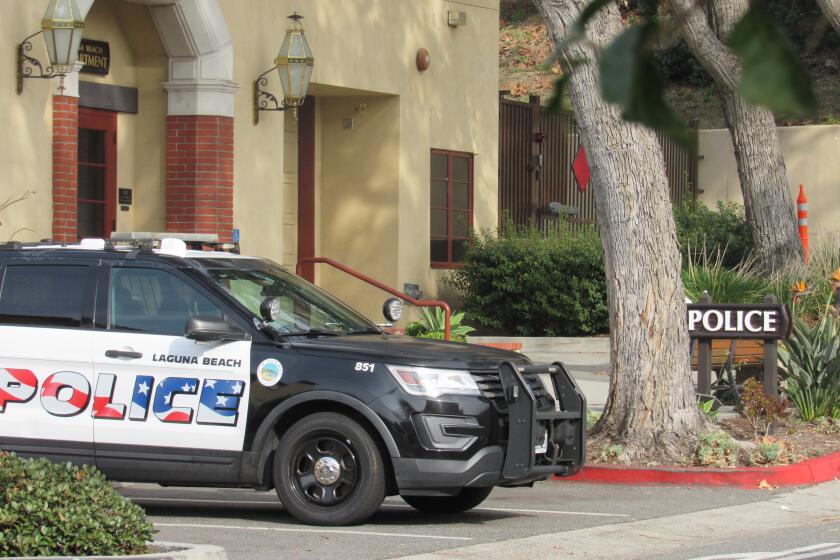Costa Mesa sober home wins a permit, but 2 others are denied
A divided Costa Mesa City Council decided Tuesday night to award a permit to allow a local sober-living home to remain open, despite objections from some nearby residents who blamed the operation for several issues in their neighborhood.
However, the council unanimously denied permits for two drug and alcohol treatment facilities.
On a 3-2 vote, with Mayor Pro Tem Allan Mansoor and Councilman Jim Righeimer opposed, the council signed off on a conditional use permit for a Summit Coastal Living facility housing up to 12 people, plus a resident house manager, in three units at 2041 Tustin Ave.
The facility has been operating since 2013.
Though council members said they understand residents’ concerns about sober-living facilities — which typically house recovering alcoholics and drug addicts, who are considered disabled under state and federal laws — most said they didn’t see a reason to turn this one down.
“I don’t find that there was any evidence that there’s anything wrong with the operation of this property or that the operation of the property will create any detriment to the community,” Councilman John Stephens said. “I do understand and appreciate and agree that we have a serious issue with over-concentration of sober-living homes in the city of Costa Mesa.”
According to city figures, Costa Mesa has 106 approved sober-living and group homes, 88 of which are licensed by the state.
In a bid to keep such facilities from clustering, the city has adopted ordinances that require them to be at least 650 feet from one another in residential areas.
The Summit Coastal Living facility complies with that stipulation, according to city staff.
Councilwoman Katrina Foley said it’s important to apply the city’s standards uniformly.
“I feel very, very concerned about the over-concentration in Costa Mesa, but in this particular application, we don’t have any evidence in the record and, if we can’t defend our ordinance, it puts us in jeopardy of not being able to enforce our ordinance against operators that we previously denied and that actually are not complying with any of the rules,” she said.
Righeimer, on the other hand, said he believes putting 13 people in the same facility is itself over-concentration and “too much for the area.”
Several residents urged the council to reject the permit application, blaming the facility for causing problems with noise, parking, traffic and crime.
The owner, Keith Randle, said that since the property became a sober-living home he’s “never had a complaint to me or to my residents about any negative impact the house was having on the neighborhood.”
“People get up here and they are going to make accusations about how we impact the community in a negative way,” he told the council. “I think it’s important to have some proof.”
As he spoke, some in the audience scoffed, sighed, shook their heads or gave him the thumbs-down sign.
The council’s approval came with conditions. For starters, sex offenders and people on probation or parole will not be allowed to live in the home. The city also can inspect the facility on weekdays with 24 hours’ notice.
Additionally, no more than two residents can be from out of state at any given time. Council members also included a provision that the conditional use permit will expire if the property’s ownership changes.
Before deciding on Randle’s application, council members adjourned for a closed session to discuss the matter with their attorney. They returned roughly 45 minutes later and voted.
Also on Tuesday, the council denied permits for a drug and alcohol treatment facility operated by Casa Capri LLC with up to 14 female residents in three units at 166 E. 18th St. and another run by Windward Way Recovery with up to 28 residents in eight units on adjoining parcels at 351 and 357 Victoria St.
In both cases, council members determined the properties violated the 650-foot buffer rule.
Even so, Casa Capri can continue operating but with a limit of six residents because it is licensed by the state, according to city staff.
Twitter @LukeMMoney
All the latest on Orange County from Orange County.
Get our free TimesOC newsletter.
You may occasionally receive promotional content from the Daily Pilot.




